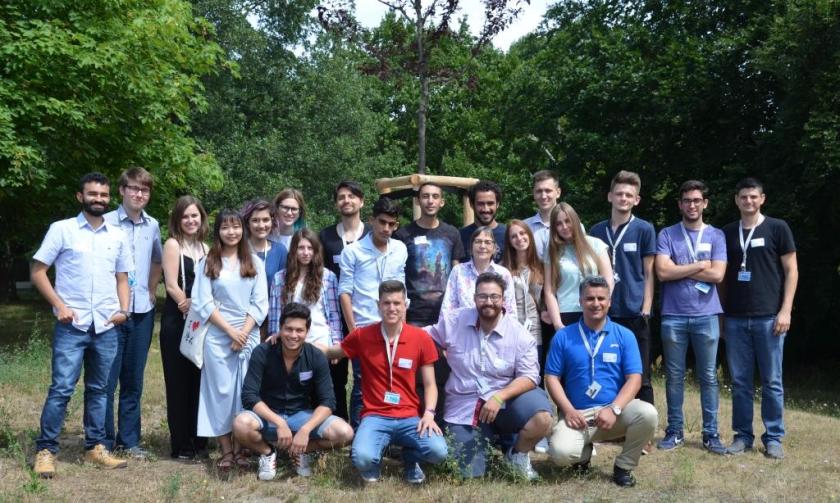Summer in the laboratory: 21 summer students start their research project at the HZB

21 students from all over the world will work on their research projects during summer at HZB. © S. Kodalle/HZB
Young people from all over the world have applied to the Helmholtz Centre to take part in the annual summer programme: eight weeks of research in an HZB team, well supervised, taking their first steps in their own scientific work. Now 21 students from eleven countries have arrived and are looking forward to their research project. They will present their results on 30 August.
They come from Canada, China, Cuba, Egypt or Russia and study chemistry, physics or materials science. For some it is the first step into research, others already have some experience. But all of them can count on the HZB scientists to support them very well in their project.
"This year again, many HZB researchers have registered with project ideas for summer students and agreed to accompany the students intensively," says Gabriele Lampert, who coordinates the summer student programme. "I know that this also means additional work, but the experience of recent years also shows that it is often worthwhile for both sides. It happens time and again that summer students here at the HZB enjoy research and come back later, for example as doctoral students or users.
red.
-
A warm welcome: Summer students start at the HZB
On 1 July 2024, 18 summer students from 15 nations started their work at HZB. Until 23 August, they will be supervised in various research teams and take on their own small project. For many students, this is their first contact with research.
-
Best Innovator Award 2023 for Artem Musiienko
Dr. Artem Musiienko has been awarded a special prize for his groundbreaking new method for characterising semiconductors. At the recent annual conference of the Marie Curie Alumni Association (MCAA) in Milan, Italy, he received the MCAA Award for the best innovation. Since 2023, Musiienko has been carrying out his research project with a postdoctoral fellowship from the Marie Sklodowska Curie Actions in Antonio Abate's department, Novel Materials and Interfaces for Photovoltaic Solar Cells (SE-AMIP).
-
Sebastian Keckert wins Young Scientist Award for Accelerator Physics
Dr Sebastian Keckert has been awarded the Young Scientist Award for Accelerator Physics of the German Physical Society (DPG). The prize is endowed with 5000 euros and was presented to him on 21.03. during the spring conference in Berlin. It honours the physicist's outstanding achievements in the development of new superconducting thin-film material systems for cavities.
